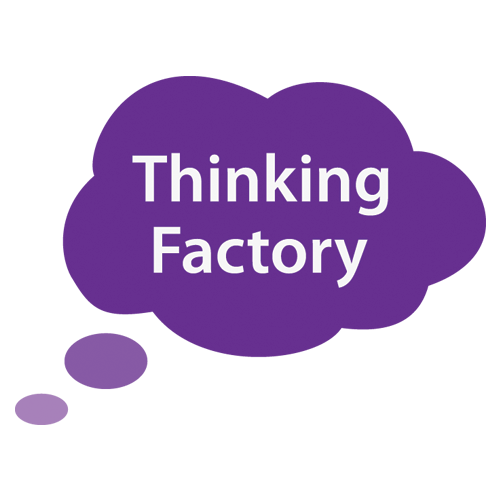In our previous post on Oral Spoken Interaction, we covered the use of Circle of Viewpoints (CoV) to help us see an issue from multiple perspectives. This enables us to have a more holistic, well-developed discussion.
In this post, we will be learning another brainstorming model that helps us to expand our talking points —SPECTRA.
What is SPECTRA?
SPECTRA addresses a variety of areas/themes and is an acronym that stands for the following:
- Social/Scientific/Sports
- Psychological/Physical/Political/Philosophical/Personal
- Environmental/Educational/Economic/Ethical/Emotional/Entertainment
- Cultural
- Technological
- Race/Religion/Rights
- Artistic
In a way, using the different components in SPECTRA allows us to see from other perspectives and consider factors/implications/consequences that we might otherwise miss out.
Applying SPECTRA to the Question
Here are some examples of questions for which you can use SPECTRA:
1 – Would you consider being an influencer? Why or why not?
You might have some answers that immediately pop up in your head, e.g. fame and reputation (Social), wealth and luxury (Economic). But, take a step back and think about other aspects involved in being an influencer, apart from these common ones.
- Technological:
Given that influencers spread their influence primarily through social media and online platforms, are you tech-savvy and able to navigate the digital sphere and all its possible snares? How good are you at taking advantage of all that the Internet affords you? - Psychological/Emotional:
Not every aspiring influencer succeeds on the first time or it could very well be an arduous journey to gaining a huge following. What could the impact be on your mental and emotional health? What might being an influencer cost you in terms of your psychological well-being?
2 – Would you like to spend your June holidays volunteering at a childcare centre?
What first comes to your mind could be the Social and Educational aspects of being a short-term childcare teacher (or assistant) — you could interact with the children and teach them values and life skills. Drawing on the other components of SPECTRA, you could also see this fromother perspectives.
- Emotional:
This could mean a delightful break from the busy school term, allowing you to refresh and recharge yourself in the company of children. - Personal:
You could share how you are fond of or have the gift of caring for children.
Challenge:
Can you think of any other aspects in SPECTRA that you can use to discuss the above questions?
Let’s try a slightly more challenging question:
3 – “Some people say it’s better for children to study hard than to spend a lot of time learning to play a musical instrument.” What is your opinion?
This question compares “studying hard” with “playing a musical instrument” and requires you to discuss which is the better ‘investment’. You could list down all the pros and cons for each of these activities/endeavours but using SPECTRA might just help you organise your thoughts better.
- Social:
While learning to play an instrument could allow a child to socialise with his/her peers, studying hard to the neglect of social interaction could hamper a child’s ability to build meaningful relationships. While one might argue that studying hard could be done in a group and fosters healthy cooperation and competition, playing a musical instrument - Psychological/Emotional:
Playing a musical instrument has enriching benefits to mind and soul that cannot be replicated by academic study. Learning to play and enjoy music improves one’s mood, decreases anxiety and helps one tomanage stress better.Immersing oneself in music or escaping into the world of music might also be the fuel for more productive study after one’s mind is refreshed. - Economic and Cultural:
In the Singapore context, we might be persuaded to the former — that the benefits of studying hard outweigh that of playing an instrument as this is a society that values paper qualifications more than other non-academic talents. Studying hard and getting good grades is more likely to earn one a better, higher-paying job, while it could be harder to earn a living playing music. As such, excelling in one’s studies has more economic value than honing one’s musical talent, and this is influenced by the Singapore mindset (cultural context).
Without SPECTRA, it is easy to simplyshare from yourpersonal experience without discussing wider implications, as the above points have shown. While personal experience matters (and could be a good starting point), stopping there could make the discussion a little underdeveloped.
In summary, we have learnt how to identify relevant aspects in SPECTRA to discuss a topic, which allows us to open up more talking points and even deepen our discussion. Note that the goal is not to cover as many aspects as you can, but to enable you to select the most relevant ones. You should aim for three.
SPECTRA Exercise
Try using SPECTRA to discuss the following question*.
“The COVID-19 pandemic has made it difficult to build relationships.” How far do you agree with this statement?
This is also the question posed in the previous post, and here are some brief discussion points using Circle of Viewpoints (CoV):
- Students/Teenagers—Lack of interaction with schoolmates and friends; staying at home in close quarters with family members could cause tension.
- Working adults—Lack of interaction and possible miscommunication with colleagues and superiors; more time to spend/interact with family members and build better relationships
- Parents—More flexibility and time with children (if work permits) or blurred work-life boundaries that result in less time and thus more strained relationships with children and/or spouse.
- Attendees of churches and mosques—As religion is social and communal in nature, lack of physical gatherings makes it hard to encourage one another. Worshippers might grow weary or distant, with some drifting away and not returning even when allowed to.
Don’t Miss Any Future Post!
2024 Bukit Timah Branch Secondary English Tuition Timetable
| Level | Class Type | Day | Time |
|---|---|---|---|
| S1 | All Components Class | SAT | 5 pm to 7 pm |

